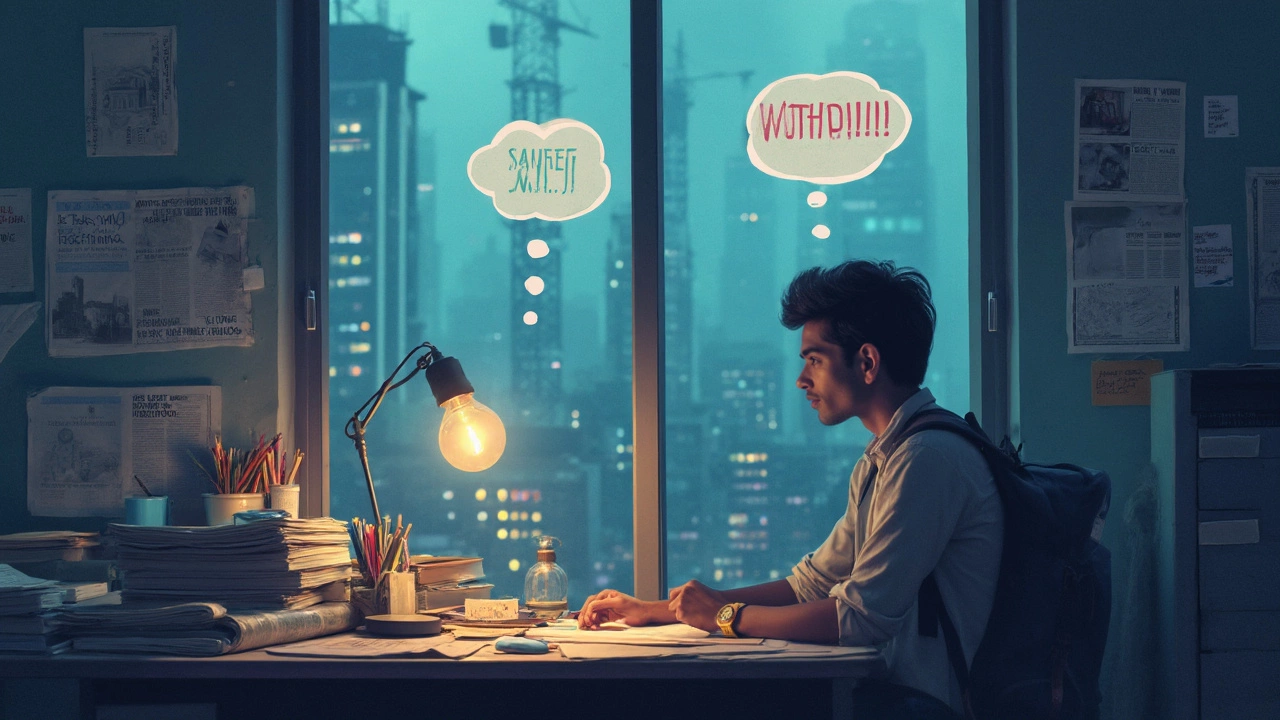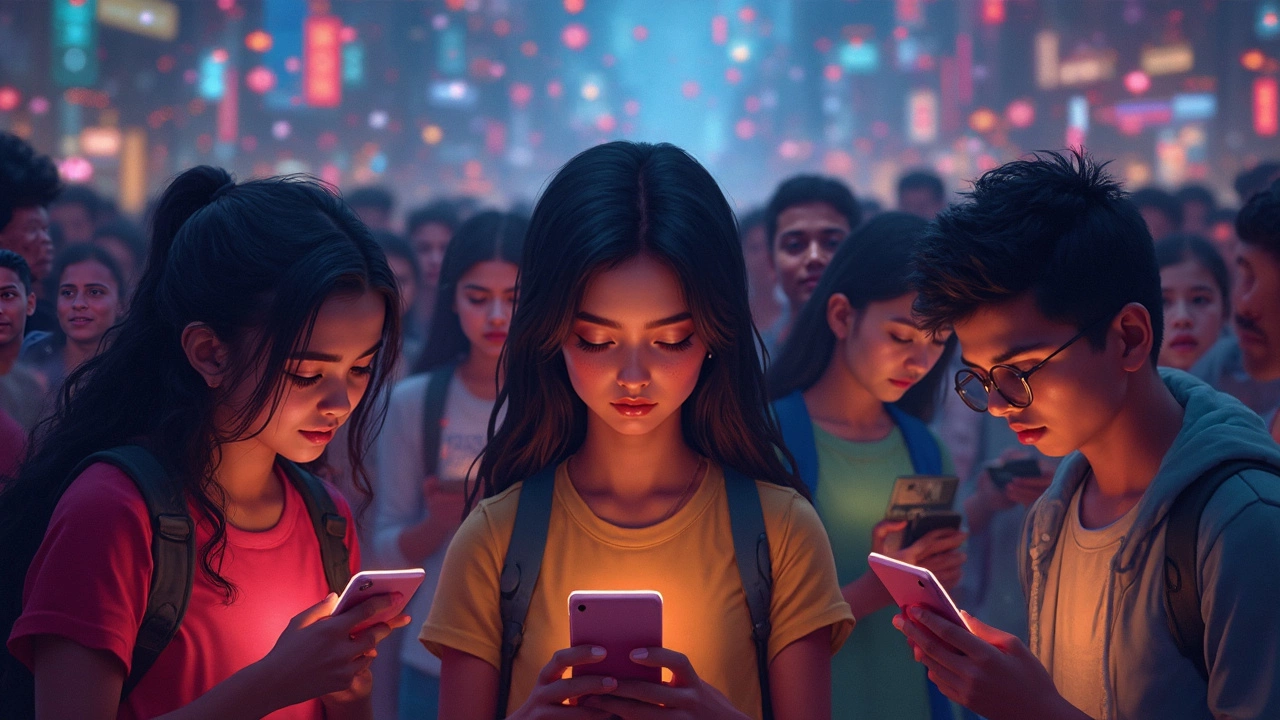It’s not hard to spot the signs — a mate ghosting group chats, TikTokers sharing burnout stories, and whole online communities confessing they feel lost before they’re 25. Gen Z has a reputation now: more anxious, more likely to burn out, and more willing to walk away than any generation before them. If you grew up with dial-up internet, you might stare at news headlines and wonder what happened. But if you watch what’s happening up close, you’ll see Gen Z isn’t just giving up for no reason. Life handed them a load that would send older generations running for the hills too.
The Relentless Pressure Cooker: What’s Crushing Gen Z?
Start with one simple, brutal fact: Gen Z has almost never known a "good economy." If you’re born after 1996, you missed the years when universities opened doors, not just debt, and when buying a place didn’t require a miracle (and a six-figure deposit). In Australia, house prices have exploded more than 300% since the early 1990s, but starting salaries for grads have flatlined. Throw in HECS/HELP debt, skyrocketing rent, and you can see why many younger Aussies roll their eyes at ‘just save more’ advice from older folks.
Cue the digital age — Gen Z is the first tribe fully native to the internet. They’ve seen live footage of disaster, war, and bullying since they were little kids. Social feeds and news alerts never let up, so their minds are always running. There aren’t any quiet corners anymore. According to Beyond Blue, one in three Aussie young people aged 18-24 reports symptoms of anxiety or depression.
The “pressure to perform” starts impossibly early. Schools push ATAR perfection. Instagram filters life until it looks fake. Every slip-up — online or IRL — could follow you for years. Everything’s tracked and judged: likes, views, test scores, resumes. It never ends. For some, this just leads to numbness or cynicism. For others, it’s exhaustion, fear, and major self-doubt.
| Issue | Gen Z Experience (%) | Researchers |
|---|---|---|
| Loneliness | 54 | Mission Australia, 2023 |
| Burnout Symptoms | 48 | Deloitte, 2024 |
| Mental Health Struggles | 36 | Reachout, 2023 |
| Financial Distress | 62 | Finder, 2024 |
The cost? Many feel it’s just not worth it. If effort doesn’t seem to pay off, why keep pushing until you snap? Their “giving up” isn’t about laziness. It’s a reasonable reaction to an unreasonable world.
How Social Media Fuels the Feeling of Failing
If you think keeping up with the Joneses was exhausting, imagine doing it every second on a pocket screen. Gen Z’s social playground is digital. Every success, date, and meltdown is on Instagram, BeReal, or TikTok. You’re always on display—in public, to strangers, even to future bosses. Chasing likes and validation on social media can drain your energy until you feel hollow. No wonder most of them call socials bittersweet at best.
Here’s a wild stat: A 2023 report from Australian Psychological Society found 61% of Gen Zs can’t go more than three hours awake without checking socials. Most spend at least 4 hours daily scrolling, posting, or lurking. It’s meant to be fun, but scroll long enough and you find the toxic side. That highlight reel vibe — everyone else crushing it, flawless and rich — makes your normal life look sad by comparison. Half the time, those images are fake, staged, or bought. Still messes with your head, doesn’t it?
Cyberbullying goes hand-in-hand with this new world. Getting called out online isn’t just embarrassing—it can ruin a teen’s mental health or career odds. According to eSafety Australia, 63% of Aussie teens have witnessed bullying online, and a quarter have copped it personally.
When you add cancel culture and the fear of saying something wrong—permanently wrong—it’s tempting to just bail out, log off, or stop trying altogether. Some delete their apps or their whole internet presence just to breathe easier. Giving up isn’t about not caring. It’s self-preservation.

Burnout and the Body: Physical Toll of Modern Stress
The word “burnout” used to be something you heard in middle age, after decades slogging away. Gen Z? They’re burning out before they hit 25. Australian Clinical Psychologist Dr. Emma Ryan found that university students today report exhaustion levels similar to workers nearing retirement. It’s the never-ending grind, the side-hustles, study, debt, and social pressure lumped into one.
Work isn’t the only thing causing burnout. The environment is a huge anxiety trigger. You only have to flip open a news site to see: coral dying, forests burning, politicians bickering instead of fixing stuff. Climate change is real and horrifying, and a stack of Gen Zers say they see no future, or that they’re too anxious to plan for one. A 2024 Monash University study found 71% of Gen Zs regularly feel "eco-anxiety"—that creeping stress about environmental doom.
Physical health takes a hit too. Sleep is awful—teens and uni students average just 6-7 hours a night, less than the recommended amount. Blue light, endless late-night scrolling, stress dreams, and schedule chaos chew up what little rest they can find. Headaches, gut issues, and even high blood pressure are cropping up in people far too young for that sort of thing. Mental fatigue leads to disconnect—some just want to quit, turn off, and walk away.
- Skip the shame. It’s normal to feel tired—don’t beat yourself up.
- Set digital boundaries. Actual phone-free time helps your brain recover.
- Talk about what you’re feeling—seriously. Don’t bottle it up.
- Remember, nobody has it figured out. You’re not failing. Life is tough right now.
Professional help matters. Don’t write off counseling—most universities in Australia offer free or discounted mental health support. Friends and mates matter heaps, but trained help can really make a difference.
Searching for Meaning: How Gen Z Redefines Success
Here’s where things turn interesting. If hustling 24/7, burning out, and performing for likes is the old blueprint, Gen Z is busy binning those rules. They’re not giving up on life—they’re walking away from an ugly definition of giving up that never made sense. Instead of chasing debt, status, or workaholism, Gen Z is asking, “What do I actually want, and does it matter?”
It shows in careers. Gen Z is less willing to stick with toxic jobs, even if it means quitting without a new gig lined up. Flexibility, meaning, and real mental health support top their wishlist. According to Seek’s 2025 Future of Work survey, 69% of Gen Z say they’d rather have a balanced, meaningful life than chase promotions. And here’s the big twist: many see ‘quiet quitting’ (doing only what your job pays for) as a rational move, not laziness.
Friendship circles look different too. Instead of giant, shallow networks, young people are building closer, smaller groups. They’d rather have three ride-or-die mates than 300 acquaintances. Real conversation beats small talk—so their social time is more intentional, less draining. They’re also fiercely open about therapy, meds, and struggles. This honesty removes shame and helps others do the same.
Activism is big. Unlike the old “sit tight and suffer” attitude, Gen Z wants change—on climate, gender, hate, racism, and more. Even when overwhelmed, their hope for a better system draws them together. If you see them as pessimists, you’re missing the point. They want the world to change, and refuse to fake being okay with broken stuff.
So what helps? Tips that work:
- Focus your energy on what you can change—small victories add up fast.
- Create your own definition of success. Don’t rely on anyone else’s idea.
- Laugh at the chaos—memes, dark humor, a bit of irreverence goes a long way.
- Lift up your mates. Check in, ask the awkward questions, and listen.
- Remember, you’re not alone — millions are feeling the same mess you are.
Gen Z is exhausted, yeah. But most aren’t “giving up” on life—just on ideas that were never built for them. Watch them closely, and you’ll see a new way forward taking shape: one where honesty and balance actually matter. You might even want to copy them, just a little.

